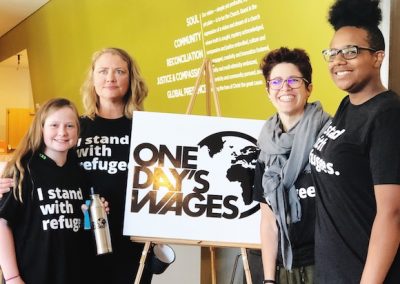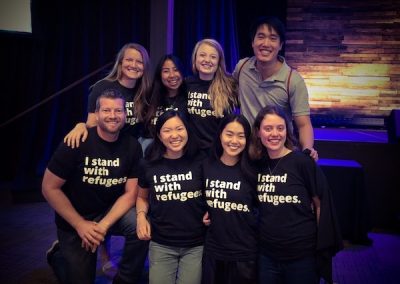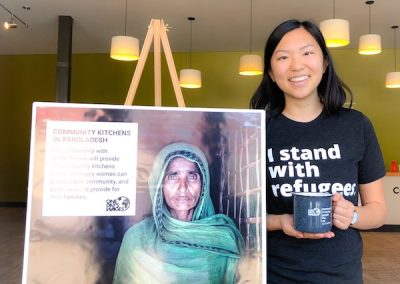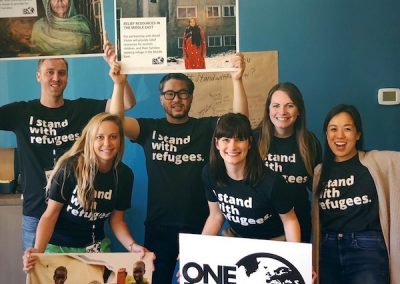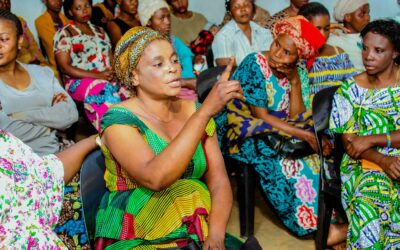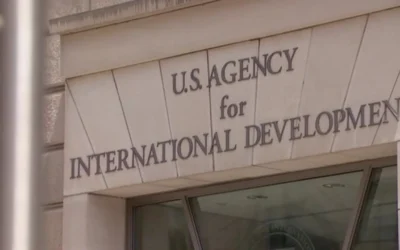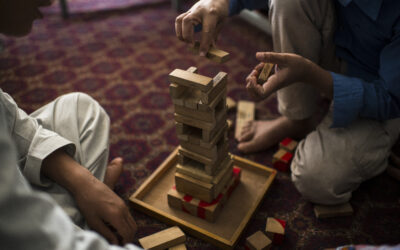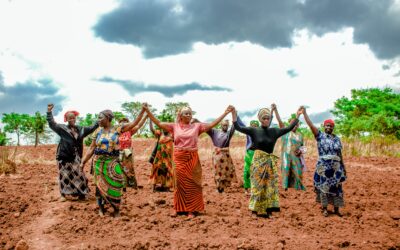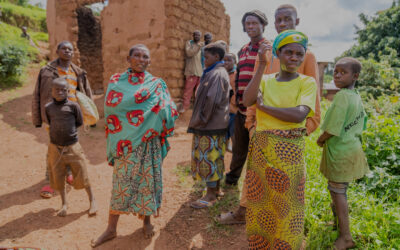How Do We Stand With Refugees?
This month we’ve been really energized by collaboration, partnerships, and people taking action. There is a growing need to provide more relief resources for refugees around the world. Last weekend, we gathered together with our partners and community in Seattle to watch our film, listen to stories of resettlement and relief aid, and learn how we can make a difference together.
One theme that resonated throughout the morning was resilience. The resilience of children, of fathers dreaming for their families’ futures, of mothers building community in the midst of such heartache and destruction.
As our partners shared about their work providing relief, raising funds for essential resources, and building resettlement programs, Eugene asked: “What encourages you in the heavy work that you’re doing?”
“It’s the resilience of children. The resilience of children is really that hope. That’s what encourages me. They get through incredibly difficult circumstances, and they push through and flourish.” | Sebastian Mathews
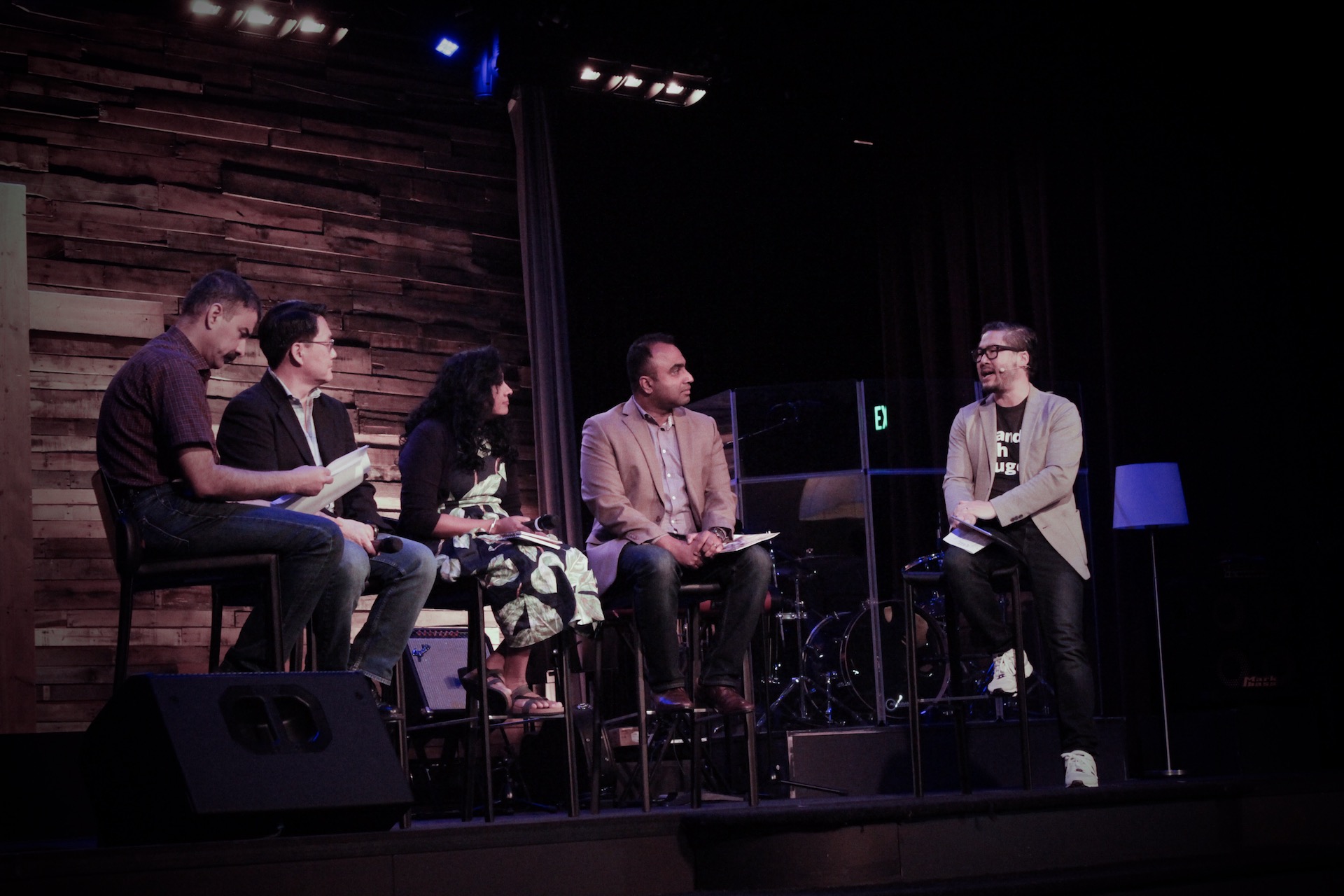
Chitra Hanstad echoed his response: “What gives me hope is the resilience of refugees that I get to work with everyday.”
Listening to stories of refugees, inviting them to your home, learning about their culture and their traditions, using your voice and your vote to advocate for a better future — these are all things you and I can do.
Maher Abed, who was a refugee in Iraq and has resettled in Seattle, shared this piece of advice: “Engage with these families, have some knowledge about them, how they live, their culture. What are their traditions? If these refugee families see that you learned about their culture, and took time to research their traditions, that will mean more to them than if you bring them things.”
The stories of refugees are really heavy; they’ve all experienced trauma and it can be easy for us to remove ourselves from the weight of this reality. So how do we stay engaged and actually make a difference?
“The key is humanizing refugees. They’re people. They’re parents with kids. That is the common theme that unites all of us. Here’s a mom and dad and they want the best for their kids and their future. One hundred years from now, we’re going to look back and ask how could we allow this to happen? Will the excuse be that we didn’t know? That’s what you’re doing. You’re letting people know and forcing people to confront that reality.” | Sebastian Mathews
How to take action
Listen, learn, advocate, give, and invite your own friends, family, and community to be part of this movement with you. As we grow in our own knowledge of the refugee crisis, we have a responsibility to do something with that knowledge. Have tough conversations, invite new people to your home, advocate for political change. You can use your birthday, start a lemonade stand, or create your own fundraising campaign to give towards refugee relief programs. As we collectively work together, we are making an impact.
“What gives me hope? I’m looking at hope right in front of me [to the audience]. Why? The work that is being carried out in the field doesn’t work in isolation from the prayers, thoughts, and support of many people.” | Ken Kim
We want to continue to mobilize this movement to share stories of hope and stand with refugees. Your desire to learn more, advocate for the marginalized, and give to make a tangible difference in the lives of refugees encourages us to keep pushing forward.
Share this story: [shareaholic app=”share_buttons” id=”26108403″]
More stories of impact
Turning Challenges into Opportunities: Masoka’s Journey of Empowerment
Masoka’s hands are stained with the rich soil of the land she now calls home. A 37-year-old mother of four, she arrived at Dzaleka Refugee Camp in Malawi after fleeing the conflict in her home country, the Democratic Republic of the Congo. The future felt uncertain,...
What Was USAID, and What Now?
USAID has made news headlines constantly over the last few months. You may find yourself wondering: what is USAID, and is One Day’s Wages affected by its dismantling? As a global development organization, we at ODW care deeply about the people who depend on foreign...
Growing Love, One Drop at a Time: How One Woman Turned Her Birthday into a Gift of Clean Water
When Sara, a graphic designer and mother from Oregon, started thinking about how to celebrate her birthday, she decided to do something different—something meaningful. With a belief that “we are all connected… with the power to affect change by how we live our own...
Bridging the Gap: An Update on Our Response to the Funding Freeze
In Matoh, Cameroon, a mother prepares to give birth. Life in a conflict zone means getting to a safe facility with trained health workers is nearly impossible. Fortunately, a new mobile clinic begins offering prenatal care and transportation to a birthing clinic,...
Why We Invest in Women
There’s an old Ghanaian proverb: “If you educate a man, you educate an individual. But if you educate a woman, you educate a family.” On this International Women’s Day, we celebrate the power of women—how their resilience, leadership, and determination transform not...
The Case for Social Inclusion
Today is the World Day of Social Justice! Never heard of it? Never fear, we’re here to fill you in. In 2009, the United Nations General Assembly launched the World Day of Social Justice to recognize our on-going need for inclusive economic development and decent work...
LEARN
Leadership
Transparency
Read the Latest
Contact Us
COLLABORATE
Faith Groups
Schools
Businesses
Get Involved
One Day’s Wages exists to alleviate extreme poverty by investing in, amplifying, and coming alongside locally led organizations in underserved communities.
©2025 One Day's Wages is a registered 501(c)(3) organization | Tax ID #26-2566653 | Privacy policy | Terms of use
P.O. BOX 17575 Seattle, WA 98127 | Contact us

